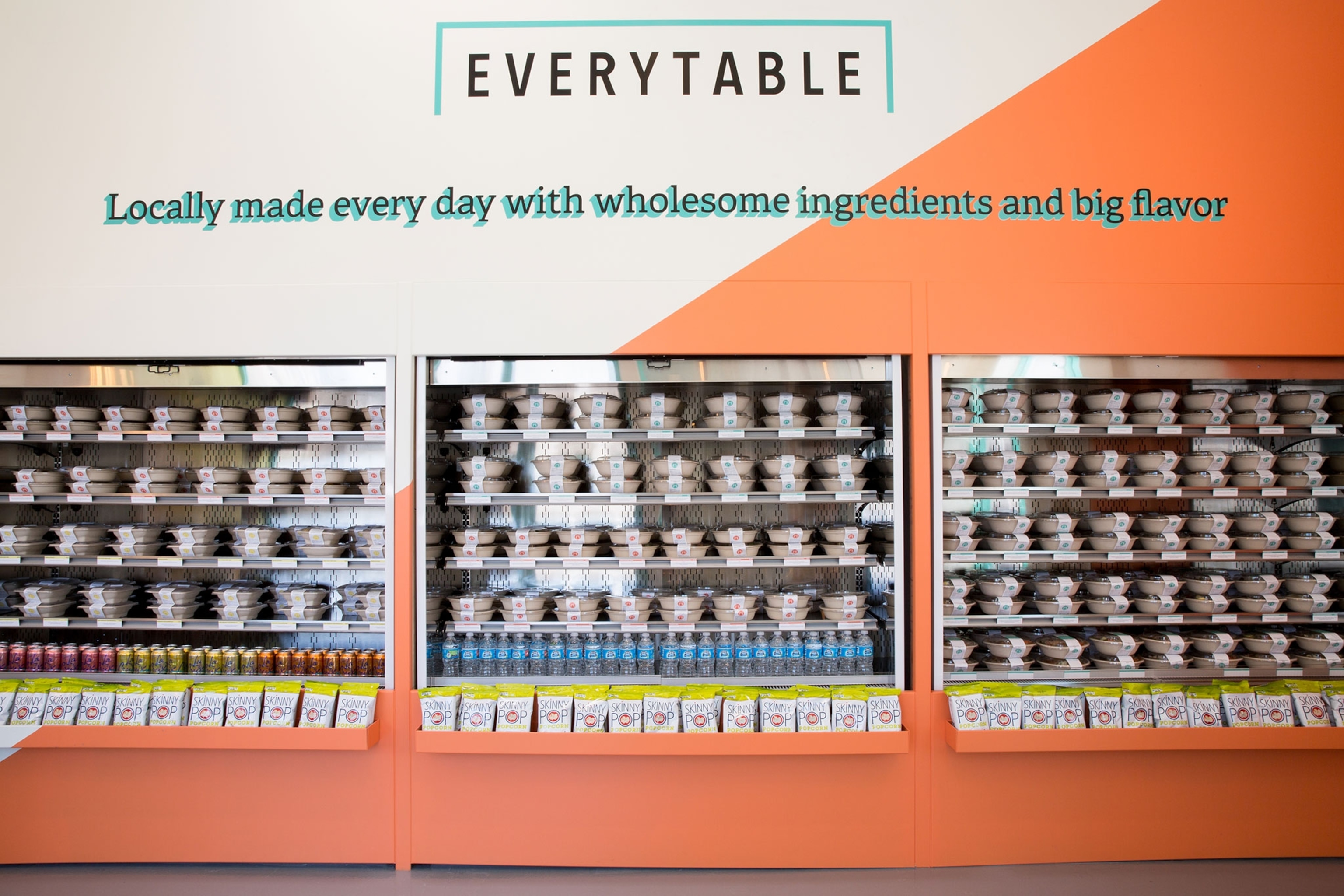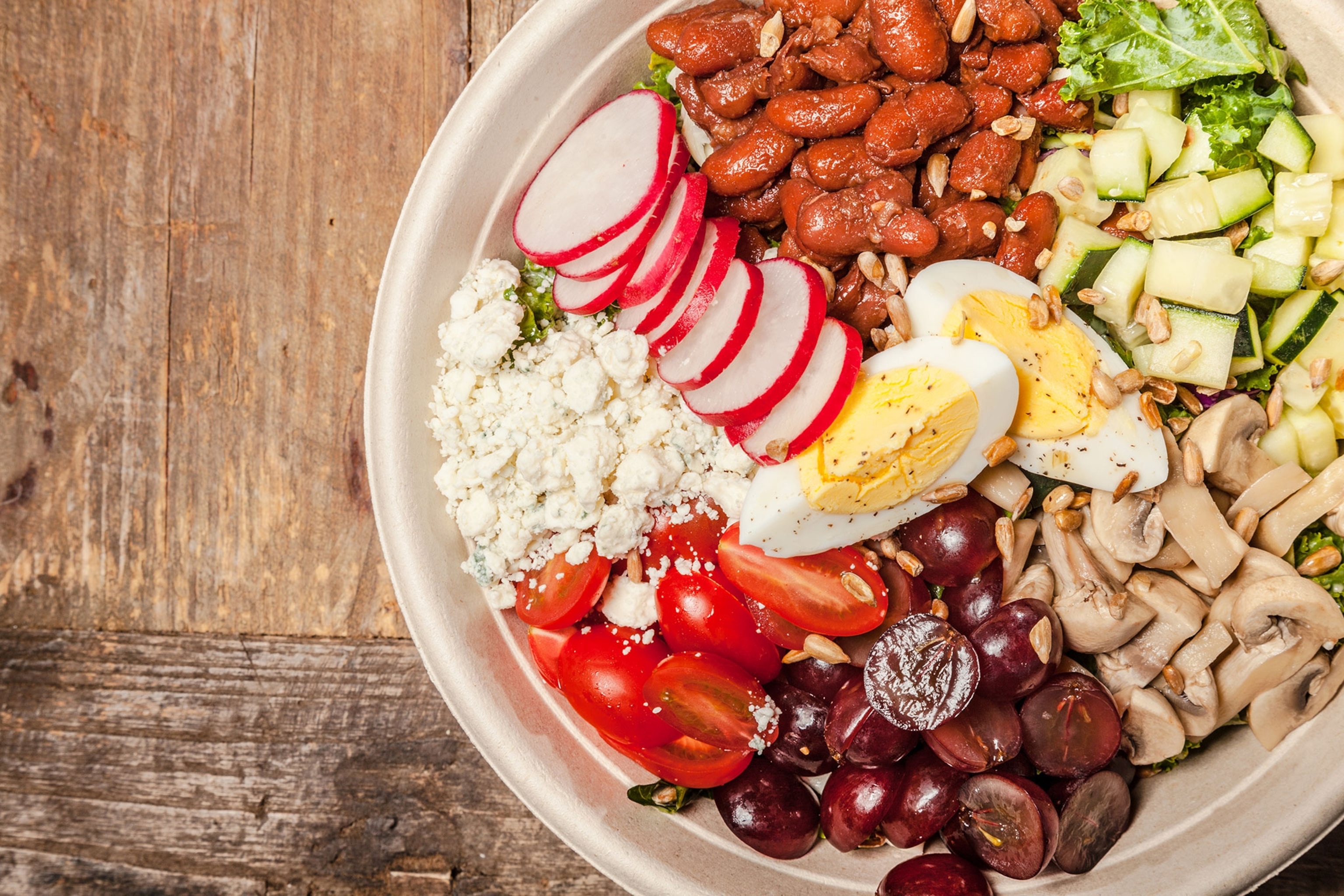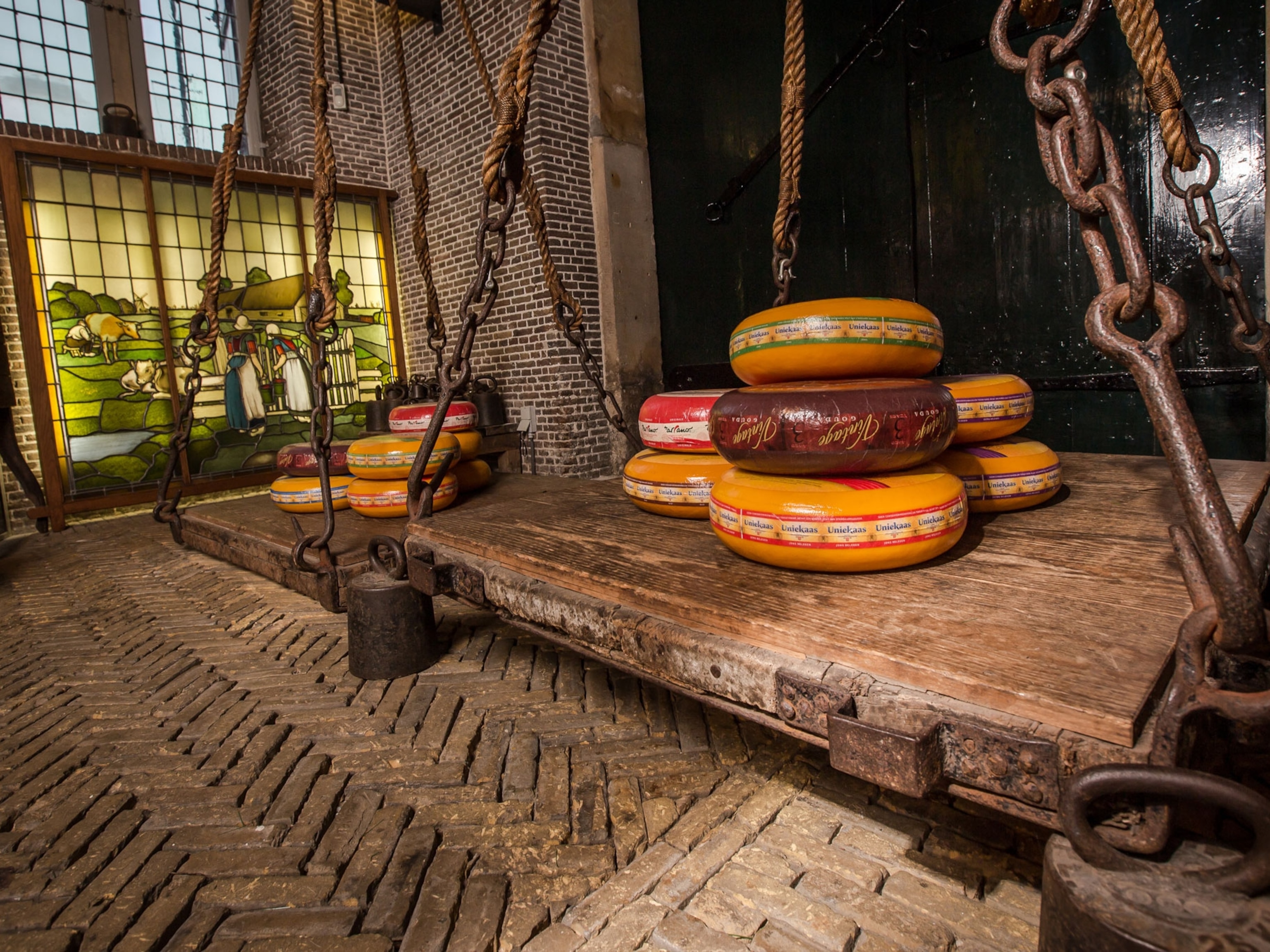
At This L.A. Food Chain, Where You Live Decides What You Pay
Everytable's healthy grab-and-go meals will be priced by location, putting nutritious fast food within reach of communities in need.
It's the end of a long, stressful workday. There's been no time to plan a meal, and anyway the nearest grocery store is in the opposite direction. You're already getting home later than usual, and you need something fast and convenient.
We've all been there. But what if your only options for a quick dinner to take home to the kids are Burger King and McDonald's?
That's what former Wall Street trader Sam Polk and former private equity executive David Foster want to change, beginning in South Los Angeles.
Their new restaurant concept, Everytable, puts fresh, nutritious grab-and-go meals into physical and financial reach of those in low-income areas. Now, for roughly the price of a Big Mac, residents of this community—where more than 40 percent of households earn incomes well below the national average—can pick up a Puebla chicken tinga bowl, made fresh that day from a locally inspired recipe and packed with a healthful mix of grains, vegetables, and protein.
What makes Everytable unique is that prices will vary according to the community each restaurant serves—even if the communities are right next door. So a Spicy Mexi-Cali bowl that costs four dollars in South L.A. will cost around eight dollars in Downtown Los Angeles, where a second location will open this summer. Still, the higher downtown prices will be competitive with other outlets offering health-conscious food.
Polk hopes that part of the appeal for customers in higher income areas will be supporting a company that's bringing healthy food into communities that currently don't have access to it.
A Likely Source of Inspiration
The idea—placing fast, affordable, nutritious food in areas where residents struggle to make ends meet and feed their families—came from an obvious source: the families themselves.

After walking away, somewhat dramatically, from a career in high finance, Polk founded a nonprofit skills-building program in South L.A. called Groceryships. The program aims to help families in so-called food deserts—often impoverished areas lacking grocery stores, farmers markets, and healthy food providers. Some 23.5 million people throughout the country live in such areas.
Participants of the six-month Groceryships program learn about nutrition, experiment with whole-food recipes, and form community support networks. It was a Groceryships graduation that inspired Foster, then a volunteer, to join the nonprofit full-time. During this time, he and Polk began to notice a familiar refrain coming from parents: There was no healthy option in their neighborhoods for fast and convenient meals when they couldn't cook at home.
Everytable grew out of this need—and remains tied to its Groceryships roots. One participant went on to help executive chef Craig Hopson, formerly of Le Cirque in New York, develop recipes that reflect and celebrate South L.A.'s cultural diversity. And both the storefront and central kitchen employ former participants.
But Everytable is also a business. The efficiency of its storefronts and central kitchen—which assembles fresh food daily for area locations—will help to make each store independently profitable, Polk says. The restaurants are 500 to 700 square feet and staffed with just two employees at a time. The sleek design, reminiscent of high-end fast-casual restaurants, is also a simple one. The savings, Polk says, are passed down to customers.
Polk and Foster plan to first expand the chain in L.A., opening up to 30 locations. But eventually, they plan to expand up the West Coast and across the country.
A Socially Minded Business for Everyone
Everytable has a business model not unlike those of other social entrepreneurs who employ local artisans in developing countries, donate profits to related foundations, or give unsold food to charity. But, as Polk emphasizes, it has an important difference: At Everytable, the product itself is affordable to everyone.
"Socially conscious businesses will still leave out the most disadvantaged communities in our nation," Polk says. "Our hope is that people view Everytable as a leader in bringing socially minded businesses into the areas that need it most."
And how is the food? According to Polk, it's "out-of-this-world delicious."
Korena Di Roma is a digital editor at National Geographic. She thinks food and travel are best combined. Follow her on Instagram.




